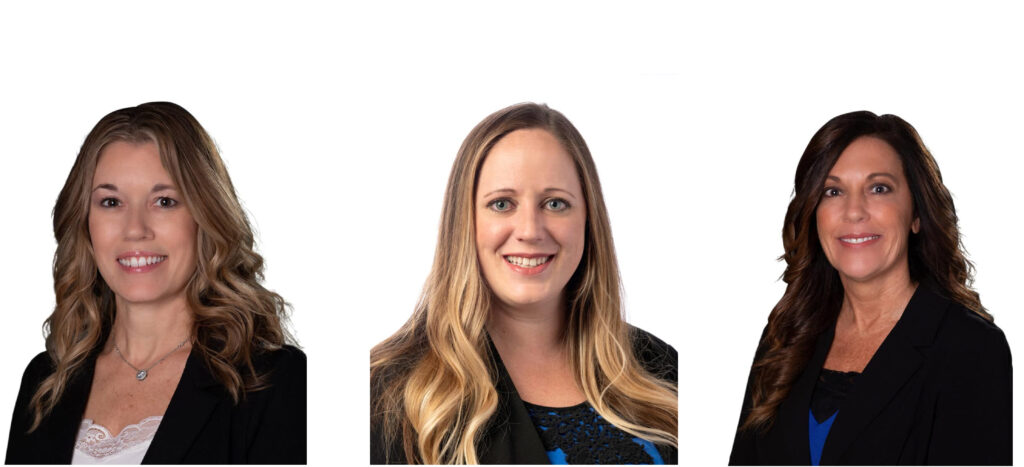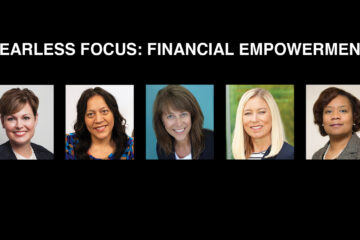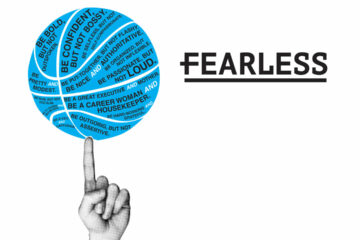By Emily Kestel, Fearless editor
Women’s involvement and representation in the field of finance and money management is growing, thanks to a variety of factors.
To start, women generally live longer than men. Roughly 70% of the assets in U.S. affluent households are controlled by the baby boomer generation, and many of them are still held by men. As the men pass away, many of the women will assume control of the assets. In fact, by 2030, American women are expected to control much of the $30 trillion in financial assets that baby boomers possess.
Another factor is the steady increase of women in the C-suite in corporate America. The more money that women are earning in C-suite positions, the more opportunities they have to save and invest.
However, according to a report from Barron’s magazine, only about a fifth of financial advisers are women, leaving ample room for improvement.
I recently talked with three women at Private Wealth – Melissa Clines, chief operations officer; Kristen Mott, associate wealth adviser; and Julie Wagner, chief compliance officer – about women’s strengths in the industry, and what can be done to get more women in the field.

Twenty-five of the 44 people working at Private Wealth are women, four of the six C-suite officers are women and a third of the founding partners are women.
Their responses have been edited and condensed for clarity.
On how women are starting to making gains in the industry
Wagner: When I first started, when women – especially at big companies – held a high-level role, they almost felt they had to be dominant and strong in order to gain the respect of male counterparts, whereas now they can bring compassion into the role and it’s not viewed as a bad thing. There’s a lot of emotion when you’re talking about money and finances. The transition started happening when women in higher-level roles banded together and realized they didn’t have to [choose between being dominant or being compassionate]. They can be both. In my role, I find that I have to be stern and say, “We cannot do this because it’s an SEC regulation.” However, I feel relationship-building is critical, because I can’t control risk if I don’t have those relationships. Compliance roles have been very male-dominated, but that is changing. Historically it’s been a lot of “you can’t do this,” but compliance now is focused on getting buy-in.
Clines: I started out as an administrative assistant at a risk assessment firm and worked my way up. At the time, there weren’t a lot of women that were strong enough or confident enough to put themselves out there. But as I’ve grown into the industry, I’ve seen so many more. I truly believe we can do just as good a job as any male out there.
Mott: I think the industry has changed over the last couple of decades and you’re seeing more women in those lead roles and as lead advisers, which is fantastic. Having women on the team definitely changes the dynamic. Typically in relationships where partners are handling their finances together, usually one person is more dominant than the other. I’ve found in my role, relater and empathy traits are my strengths, and they really give me the ability to connect with women and get them in touch with their own finances. I think as women, we’ve always been capable of these leadership roles and everything that has historically been male-dominated. I think a lot of the changes came from women’s empowerment and building up confidence in each other, women supporting other women. The skills and the abilities have always been there. It was just feeling confident enough to put yourself out there, to fight for what you want, to apply for that higher position. And then in the last decade, everything with diversity, equity and inclusion, that makes a huge difference. It gives more voice and more attention to the matter.
On what makes women successful in the industry
Mott: Working with clients, it used to be all about the numbers and the graphs and the data. Julie said it well earlier, people’s financial well-being is such an emotional thing. There’s so much emotion and family and values and underlying factors in it. I think the way that we address those relationships now really gets underneath the surface of all the numbers, and down to what’s truly important, what truly moves people. Anybody now who’s successful in this type of role will tell you that the deeper connection you have on a relationship level, the more success you’re going to have overall.
On barriers that women face in managing their finances
Mott: Women need to have enough confidence and encouragement to have a voice. Having an adviser that they feel they can be themselves with and open up with is important. A lot of it is education-based. A lot of times if it’s not something that you grew up doing, you have to be inquisitive. But you’re not going to ask those questions if you’re not in a safe environment.
What women can do to feel confident in their finances
Mott: A lot of it is education. You don’t know what you don’t know. It’s important to keep encouraging women to get involved, come to the meetings, and ask the questions.
Wagner: Trust has to be part of it. Find an adviser you can trust and bond with.
What it will take to get more women into the face-of-the-company roles
Mott: Women supporting women and making resources available. I think anything we’re doing to encourage a more diverse group of people to apply for higher positions is also helpful and it’s moving the needle. I think it just takes time.
Clines: Encouraging women to find somebody in the industry that they admire and learn from them to build that confidence so they can do it too. The more they see it, the more they know they can do it and they want to take that step forward.
Wagner: It’s critical that men are also supporting women to take on those roles. Several years ago, you didn’t see that as much. Mentoring is a huge thing that we can offer.


